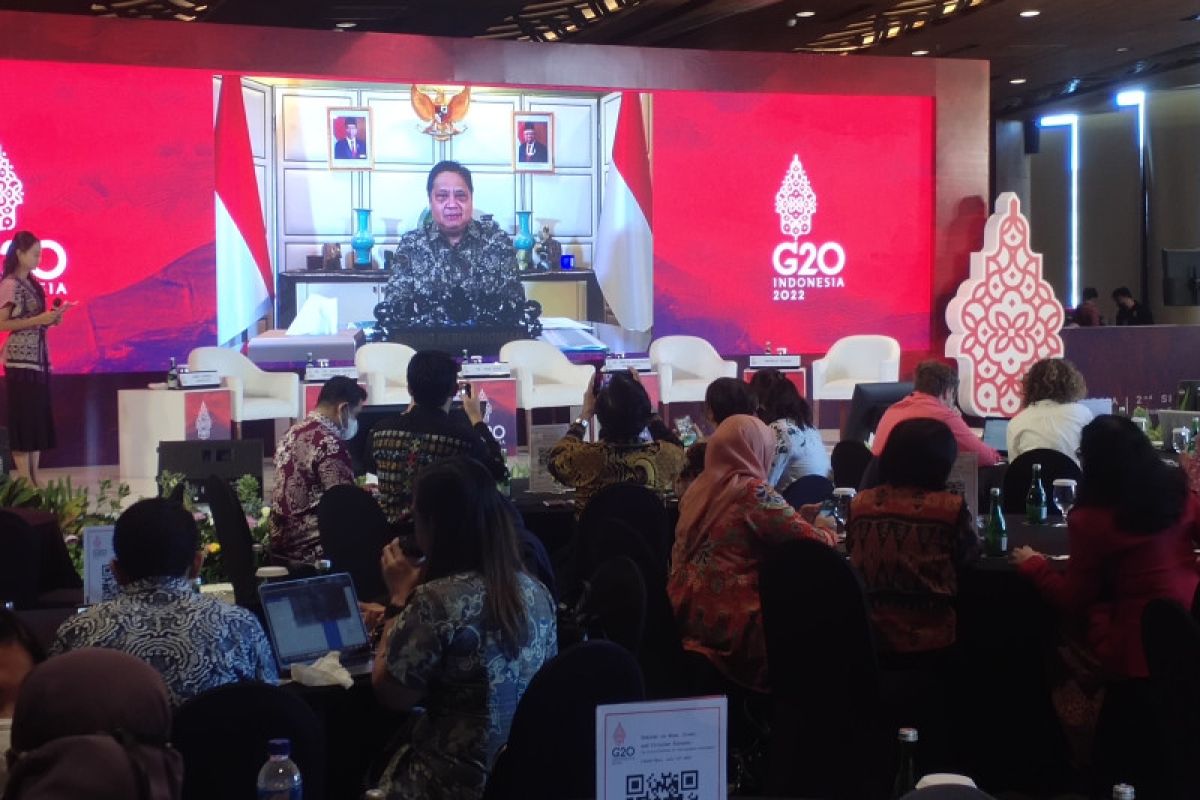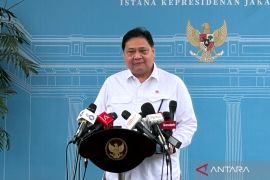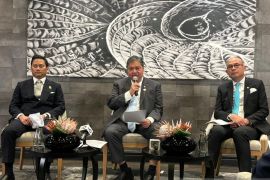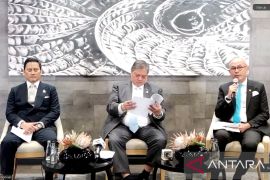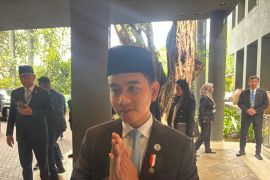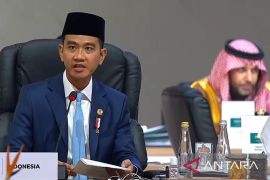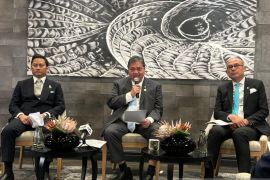Hence, an economic system with a blue, green, and circular economic approach is urgently needed.Labuan Bajo, NTT (ANTARA) - To preserve the global environment, the implementation of the blue, green, and circular economy can no longer be delayed, Coordinating Minister for Economic Affairs Airlangga Hartarto said here on Wednesday.
At a G20 side event—a seminar themed "Blue, Green, and Circular Economy: The Future Platform for Post-Pandemic Development”—he noted that global carbon dioxide emissions increased by 6 percent to 36.3 billion tons in 2021, the highest level of all time.
Furthermore, over the past 30 years, the use of plastic has doubled due to industry expansion in developing countries, he added.
Between 2000 and 2019, global plastic production doubled to 460 million tons, he said. However, only 9 percent of plastic waste is recycled. Meanwhile, 180 million metric tons of plastic is polluting the oceans, affecting at least 88 percent of marine species.
"Hence, an economic system with a blue, green, and circular economic approach is urgently needed," the coordinating minister said.
To date, marine-based economic activities have provided livelihoods for more than 10 percent of the world's population, with their total value surpassing US$1.5 trillion (Rp22,601 trillion), which is estimated to double by 2030, he noted.
Considering this potential, Indonesia will continue to develop a blue economy plan to properly manage marine and coastal ecosystems to realize economic equality and improve livelihoods, he said.
"We have set an ambitious goal to minimize marine waste, as well as restore and maintain mangroves and other marine habitats," he added.
Initiatives carried out by the government in the maritime sector have included the implementation of measurable and quota-based fishing supported by a monitoring system, the establishment of local knowledge-based aquaculture communities to eradicate poverty, and the preservation of high economic-value marine commodities.
Through the initiatives, the fishery sector managed to grow 4.55 percent year-on-year in the third quarter of 2021 on the back of exports of marine and fishery commodities, Hartarto said.
In the green economy sector, Indonesia has committed to achieving net-zero emissions by 2060 or sooner, he added.
Hence, the government has set the Nationally Determined Contributions (NDCs) targets to reduce carbon emissions by 29 percent through its own efforts and by 41 percent with foreign assistance by 2030, he stated.
To achieve the target, the government is looking to implement carbon pricing and carbon tax in 2023, he added.
The coordinating minister also emphasized the importance of financing to promote the implementation of green economy, for instance, a Climate Budget Tagging (CBT) policy carried out by Indonesia to harmonize the central and local governments’ budget plans to address climate change issues.
The seminar was a side event of the 2nd 2022 G20 Sherpa Meeting, which took place in Labuan Bajo, East Nusa Tenggara (NTT) Province, on July 10–13, 2022.
Related news: Circular economy can increase state GDP: Minister
Related news: Product standardization can boost global competitiveness: minister
Translator: Aloysius Lewokeda, Uyu Liman
Editor: Rahmad Nasution
Copyright © ANTARA 2022
